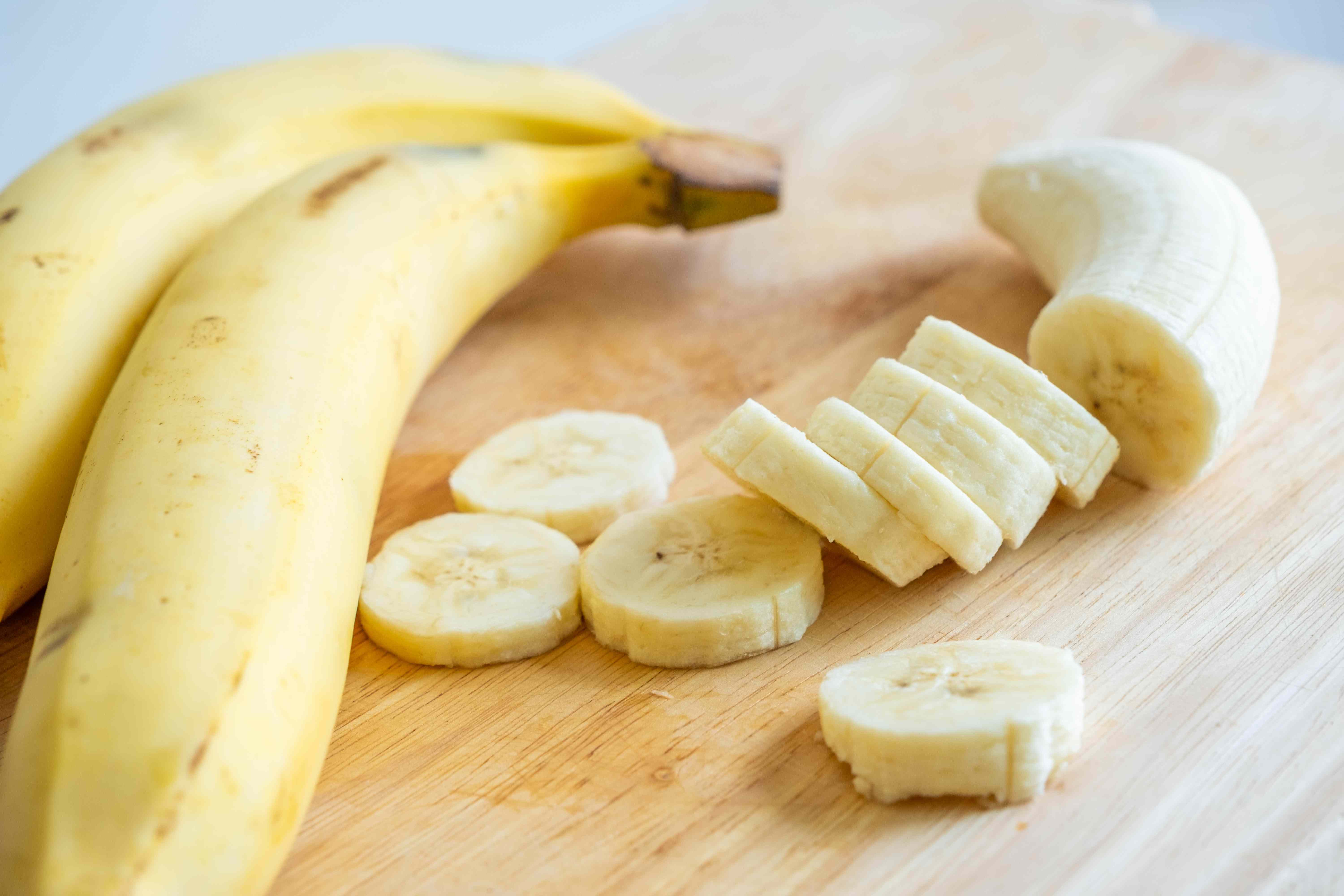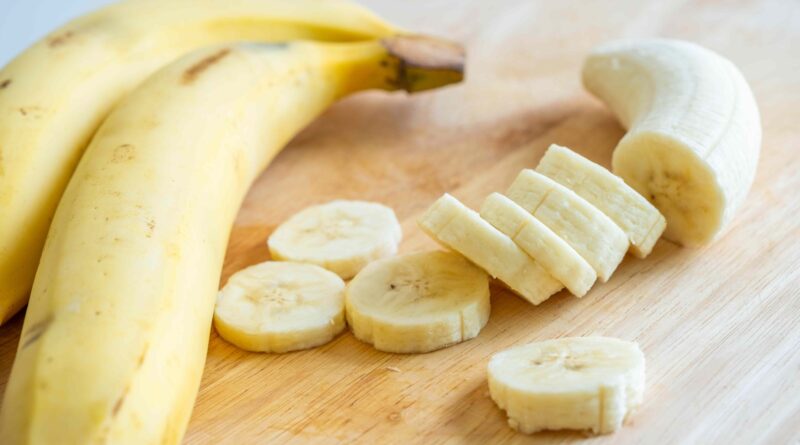The Best Time To Eat a Banana for Potassium and Energy

Bananas are rich in fiber, potassium, antioxidants, and other essential nutrients, making them a filling and energizing snack. There is no single ideal time to eat a banana to get the nutrition it offers. There may be specific benefits to eating bananas in the morning, midday, and evening, though—meaning the best time to eat one may depend on your lifestyle and health goals.
Any time of day, bananas are high in necessary nutrients, including potassium and vitamin C. But having one with breakfast can support a range of health goals, including:
- Morning energy boost: A medium banana has about 90 calories, containing 26.9 grams of carbohydrates and natural sugars. The carbs and sugars provide quick energy to get you going after fasting all night.
- Improved digestion: A raw banana contains 3 grams of fiber. Unripe bananas have a type called resistant starch. In your intestines, these form a mucus that adds bulk to your stool, makes it easier to pass, and supports gut health.
- Managing food cravings: The fiber and resistant starch in unripe bananas may slow down the digestion of sugars. This promotes food satiety, the feeling of fullness after eating.
- Antacid effects: Bananas naturally neutralize acids in the stomach that can build up overnight. Eating one can help with morning acid reflux.
Bananas also have a lot to offer as part of lunch or as an afternoon snack. You might find eating a banana in the middle of the day is best if you’re looking for benefits such as:
- Fuel to beat a midday slump: It’s normal to feel fatigued in the middle of the day. A banana’s carbs and natural sugars can provide a midday energy boost.
- Appetite management: High in fiber but low in calories, bananas increase the feeling of fullness and reduce appetite. Having one in the afternoon may help control hunger until dinner.
- Hydration: Bananas help support hydration and restore electrolytes lost in a workout. Not only are they 75% water, but the potassium helps regulate fluid balance in the body.
There are also great reasons to have a banana as an evening or night-time snack. These include:
- Better sleep: Bananas are rich in tryptophan, an amino acid that promotes sleep. High levels of magnesium and vitamin B6 boost melatonin, a hormone that helps regulate your sleep-wake cycle.
- Overnight hunger satisfaction: In the same way they prevent hunger during the day, bananas keep you feeling full at night. This may prevent late-night snacking or hunger that may disrupt your sleep.
- Less anxiety: Your body converts the tryptophan in bananas into serotonin, a brain chemical that helps regulate your mood. More serotonin may help manage anxiety, which also improves sleep.
While they’re generally a beneficial choice, bananas can sometimes cause bloating and spikes in blood sugar at night. Try not to eat one too close to bedtime to avoid discomfort.
Bananas can help you get the most out of your workout. Benefits before or after exercise include:
- Quick energy boost: Providing easy to break down sugars, bananas are a great source of energy pre- or post-workout.
- Cramp prevention: Though the evidence is mixed, the high potassium content in bananas may help reduce muscle cramps during or after exercise.
- Better recovery: In cyclists, bananas were effective in promoting muscle recovery and reducing soreness. It reduced inflammation, replenished glycogen (energy your muscles use during exercise), and helped in muscle repair.





